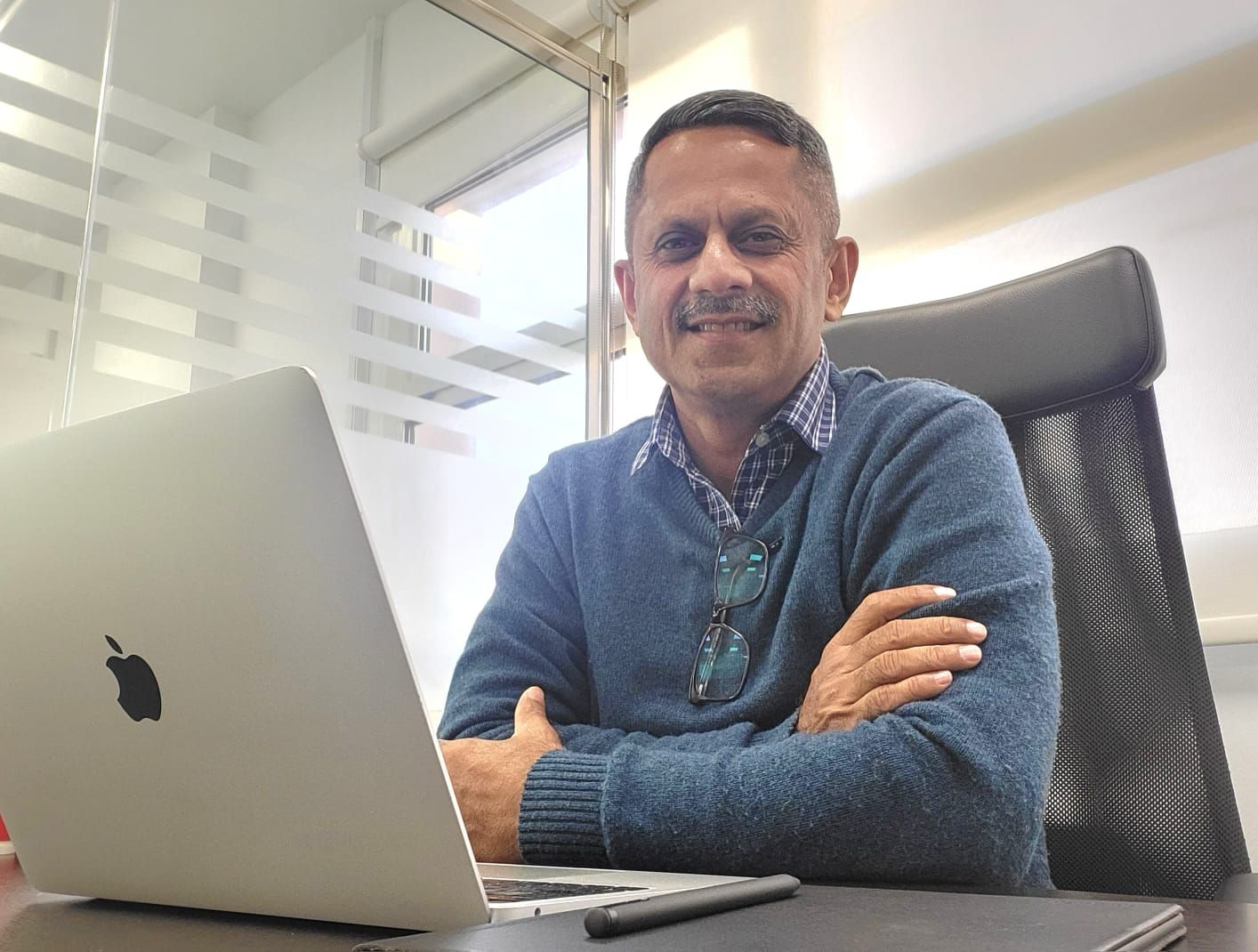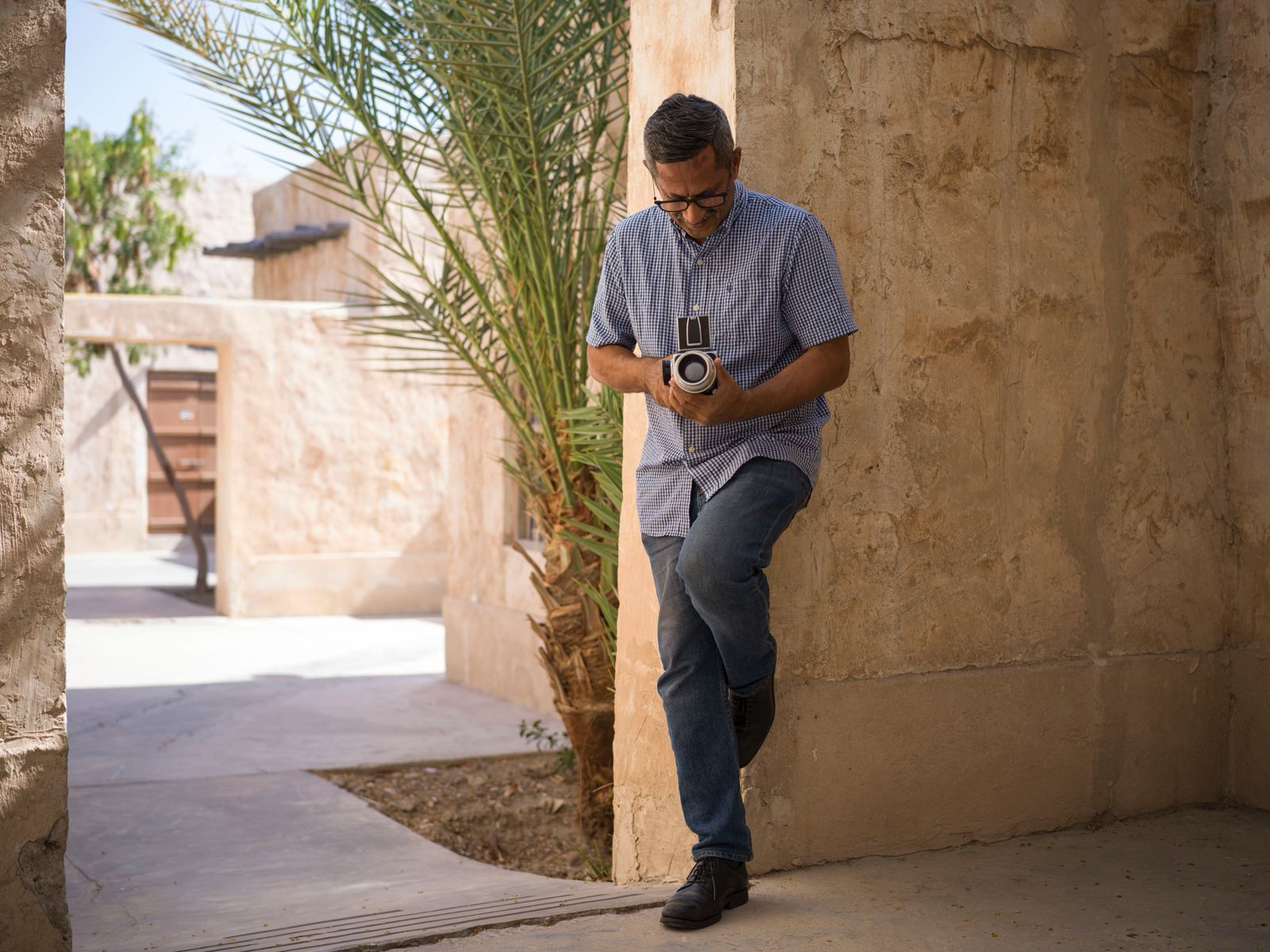Imagine a man who has navigated boardrooms across the Gulf region, negotiated deals that shaped markets, and trained sales teams to think beyond the transaction. Now picture the same man crouched in a mangrove, waiting hours for a kingfisher to take flight, Leica camera poised, eyes alert not for clients but for colours, light and the fleeting rhythm of nature.
This dual existence, of executive precision by day and artist’s soul by heart, captures the essence of Kunhali Syed, a sales strategist and mentor, photographer and writer whose journey across the UAE and the Gulf region at large has been as much about cultivating discipline as it has been about chasing passion.
For Kunhali, sales was never simply a career. It was a vehicle that allowed him to fuel something deeper. “I came to the Gulf to feed my hobby”, Kunhali says. That hobby, photography, has taken him from darkrooms of his childhood to the pages of National Geographic and beyond, always pursued with quiet integrity and purpose. Connector spoke with Kunhali to explore his journey of navigating duties and hobbies with exceptional finesse and poise.

The Salesman’s Discipline
Kunhali’s story in the Gulf begins in 1998, when he first arrived in the UAE to build a career in sales. Over the next two decades, he would work across the Gulf, spending time in Oman, Saudi Arabia, Kuwait, Qatar and repeatedly returning to Dubai, which remained his anchor.
“I worked in the UAE for six years in sales, then all around the Gulf region. But the UAE was always my base”, Kunhali recalls. Kunhali's career spanned industries, from working with industrial bakeries, helping IFFCO manage snacks and confectionery verticals, and later consolidating markets and distributors for global brands.
What bound all of this together was not the act of selling itself, but something more profound. “Recently, I trained an entire team on how not to sell”, Kunhali says. “It’s not just about selling for companies to succeed, it’s about discipline and making things work. Very little selling is actually involved”.
While many expats extended their years in the Gulf for financial stability or luxury, Kunhali’s motivation was singular: photography. “I needed money to feed my hobby”, Kunhali admits. But for him, photography was never just about picking up a camera. “To get my hands on the right equipment was important. My first Leica cost the equivalent of four cars back in India at the time”.
.jpeg)
It was this discipline, the same rigour that guided his sales strategy, that allowed him to pursue his passion uncompromisingly. Where others might have compromised, Kunhali persevered, investing heart, not just money, into his craft.
Roots In The Darkroom
Photography wasn’t a midlife discovery for Kunhali, it had been there since his childhood. “During my school days, I used to sit at photo studios, watching films being developed”, Kunhali remembers. “My interest was always more in darkroom development than in taking pictures. I took photos just to develop them. The process was very rewarding for me”.
As technology evolved, Kunhali embraced it early. While some purists refused to migrate to digital, Kunhali was among the first to invest in Hasselblad cameras, continuing film work while also adapting to new methods. “I was happy to transition”, Kunhali says, “even while maintaining my film development”.
A Photographer’s Ethics
In Dubai in the late 1990s, Kunhali was already providing photographs to newspapers, often covering accident scenes on the city’s roads. “Many news channels gave me free access to their labs and rolls, so I wouldn’t charge them”, Kunhali recalls. But even as his work gained recognition, with his flamingo shots hanging in the Saudi Chamber of Commerce and his wildlife work being published by National Geographic, Kunhali remained deeply private.
“I don’t let my name come up anywhere”, Kunhali says. “Supplying photos for free makes me happy because I still get to see the signature I've left behind. If I put a value to them, it takes something away from my heart”.
Kunhali's ethics while photographing nature is uncompromising: “I won’t even touch a leaf to take the right photo. You don’t create a scene. You capture what you encounter”. For Kunhali, photography is less about science and more about capturing an unmanipulated truth.

Kunhali's passion has always leaned towards the natural world including birds, starry skies and landscapes. “Think of shooting a kingfisher”, Kunhali says with enthusiasm. “When you’re developing films, each colour speaks to you. You see reality in detail and in layers. Cameras let us see what our eyes cannot. They transcend our shortcomings”.
This philosophy, of seeing beyond surface appearances, echoes Kunhali's approach to sales and life. Where others saw transactions, Kunhali saw discipline, and where others saw images, he saw layers of reality.
.jpeg)
Writing The Untold Stories
Photography wasn’t Kunhali's only creative outlet. In recent years, Kunhali has turned to writing. Kunhali's first attempts were professional, writing essays on sales, critiquing manipulative practices. But after an early manuscript was stolen, Kunhali shifted towards fiction, crafting novels that reflected resilience and struggles of real people around him.
Kunhali's first book was published in 2022, followed by another in 2023. One particularly moving story centred on an individual seeking asylum in Australia after being ostracised from his community. “My book helped him in some way”, Kunhali shares. “It gave him a narrative that supported his visa access. That, to me, was fulfilling”.
Lessons For The Young
Now, as a mentor and trainer, Kunhali shares his experience with younger generations. Kunhali's advice, although he does not like to call it that, is both practical and profound: “Do it with your brain and make money, there’s no problem. But think about your heart as well when you take it as a profession. Photography is more an art than a science. Shoot beyond your first few million pictures, which are usually bad”.
It is this blend of pragmatism and passion that makes Kunhali's story so compelling, as he did not sacrifice one for the other, but instead, built a life where both could coexist.
Kunhali Syed’s journey is not just about sales success or artistic recognition. It is about discipline, integrity and balance. In an age where work and passion often feel like competing forces, Kunhali's life stands as a testament that they can, in fact, nurture one another. Kunhali has shown that careers can finance passions, passions can fuel careers, and together, they can create a life rich in purpose and meaning.
As Kunhali himself puts it, “If you are an artist, keep shooting until the bad pictures are out of your system. Only then does the real vision begin”. Of course, the wisdom applies to all lifeworlds.
Kunhali’s journey reminds us that the finest lives are not lived in silos, but in symphonies, and his story is a testament to balance, to the courage of holding two callings without letting either diminish the other. We look forward to witnessing more of these quiet testaments to resilience and creativity take root.
